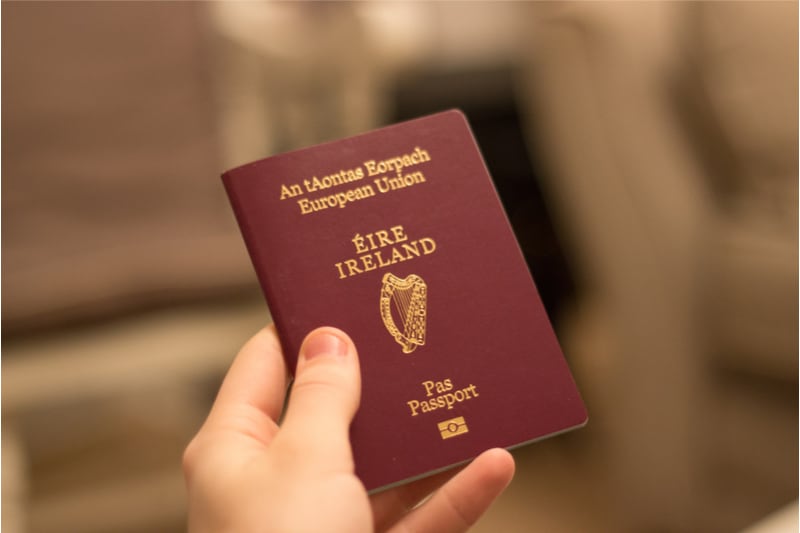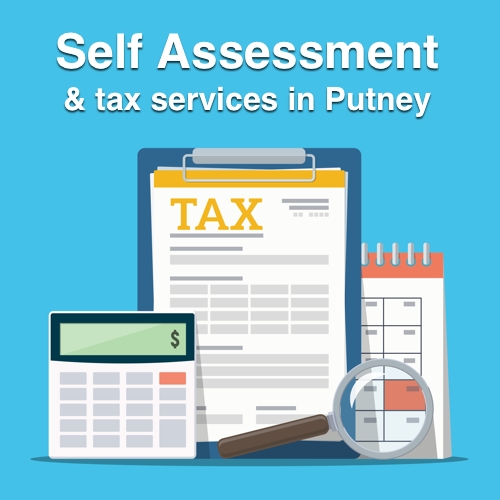Super deductions - how to maximise your business’s tax efficiency
Most business owners understand that it is important to ‘capitalise’ certain company assets. These ‘fixed assets’ can be used to reduce your corporation tax bill. However in April 2021, the Government increased the usual 100% deduction to 130% until April 2023. Read on to find out how you could benefit from this increase.
What is a super deduction?
 Over the years, successive governments try to find ways to incentivise industry or stimulate areas of business. This is especially true during troubled times, such as the financial crisis of 2008 and more recently the problems brought on by the Covid pandemic.
Over the years, successive governments try to find ways to incentivise industry or stimulate areas of business. This is especially true during troubled times, such as the financial crisis of 2008 and more recently the problems brought on by the Covid pandemic.
Reducing broad ranging tax rates, such as reducing corporation tax, VAT, capital gains, etc, introduce problems of their own, most often political, as they can appear to favour selective groups in society, so governments look for more niche methods to achieve their aims. The ‘super deduction’ is one of them, as this applies purely to businesses that qualify for corporation tax. It’s also limited in its range, as it can only be applied to new plant and machinery that ordinarily qualify for the 18% main pool rate of writing down allowances.
How does this affect the Annual Investment Allowance?
Essentially, it compliments it. Since January 1 2019, companies have been able to annually invest up £1 million in qualifying assets, these already benefit from 100% relief. This is known as the ‘Annual Investment Allowance’. Prior to 2019, the AIA was set at £200,000.
The £1 million limit has been extended to March 31 2023. The Introduction of an extra 30% deduction is, therefore, a most attractive additional incentive for owners to invest in their businesses - or even start new ones.
What is the SR Allowance that was also announced?
Along with the Super Deduction, the Government also introduced the SR Allowance.
Not all purchases can qualify for the super deduction, such as those that qualify for the 6% write down allowance rate - typically long life assets such as those associated with buildings and property. To incentivise this industry, the Government has introduced a ‘special rate for first year allowance’ - the SR allowance. This affords new plant or machinery in this bracket with a 50% first year allowance.
What businesses qualify for Super Deduction?
This benefit is only available to those entities who qualify for corporation tax. In other words, it is not applicable to those in business as individuals, sole traders, or partnerships.
What purchases qualify for the Super Deduction?
There are a wide range of asset types that can take advantage of the SD beyond the most obvious forms of fixed assets, such as computers, IT systems, manufacturing equipment and the like. In short, most purchases that contribute to the operation and functioning of your business should be treated as an asset, rather than an expense, and capitalised accordingly.
However, there are other less obvious expenditures that can close be capitalised and gain SD relief. The most common of these include:
Development costs: Under FRS 102 costs associated with bringing a system into working condition, such as those attributed to the development, can be classified as tangible fixed assets. For example, developing a new website or piece of software, could be treated as such and gain the SD allowance benefit.
Borrowing costs: When developing a new product or building a new manufacturing plant or product line, a business may be required to finance the operation. The costs of borrowing may be capitalised.
Hire purchase: Assets on hire purchase or similar purchase contracts where possession rather than ownership passes to the business can also benefit from super deduction, but only at the point where the asset began use.
The most obvious test of applying the SD benefit is that the purchased plant or machinery needs to be new and not second hand. Also, you cannot decide to capitalise something bough in prior accounting periods just to take advantage of the SD.
What happens if I don’t make a profit, can I still apply the Super Deduction?
 Yes. Not all businesses make a profit each year. Indeed, some businesses may choose to capitalise equipment porches in a financial year specifically to reduce their tax bill to zero - typically smaller businesses. If you make a loss in a year where capital purchases were made, you may carry any unused deductions forward to use as losses.
Yes. Not all businesses make a profit each year. Indeed, some businesses may choose to capitalise equipment porches in a financial year specifically to reduce their tax bill to zero - typically smaller businesses. If you make a loss in a year where capital purchases were made, you may carry any unused deductions forward to use as losses.
Selling an asset that qualified for Super Deduction
It may enter the minds of some that as the government is giving away an extra 30% in the form of a tax deduction, which is true, if they quickly sold the purchase, they may benefit further. Also, there are legitimate reasons why a firm may have to sell assets that benefited from the SD. So what happens and how is this accounted for?
Naturally, the Government is going to want their ‘pound of flesh’ in this instance. You will need to carefully track any asset that benefited from the SD, so when it comes to selling the correct treatment can be applied.
The first thing to note is that if the disposal of an SD qualifying asset is before April 1 2023, its disposal value is 1.3 times the actual disposal value. This income should then be treated as taxable profits and not allocated to ‘pools’.
Read more about the government's super deduction scheme here.
Is this a good time to start a business?
This may indeed be a good time to start a new business if that business is going to need significant investment in new capital equipment. Furthermore, if your established business is an entity in the form of a sole-proprietorship or partnership and you are looking to grow, this may be a good time to incorporate.
Talk to Tax Agility about how your business can take advantage of the super deduction scheme.
Tax Agility are chartered tax accountants operating in the Richmond, Putney and Wimbledon area. We specialise in assisting small and medium sized businesses navigate the complexities of company taxation. Our goal is to ensure your business is as tax efficient as possible and to effectively exploit incentives such as the super deduction scheme.
Why not call us today on 020 8108 0090and discuss how we can help take your business to the next level of tax efficiency.
What are the differences for tax purposes between domiciled and non-domiciled status?
A few months ago we published a case study concerning HMRC enquiring about foreign income. This can happen if you are a foreign national and are now living and working in the UK. An area we didn’t touch on was associated with how HMRC views your domiciliary status. The recent news about Rishi Sunak’s wife has highlighted this is somewhat complex and often misunderstood area of tax law. In this short post we’d like to help explain what it means to be ‘domiciled’ or ‘non-domiciled’ where tax in the UK is concerned.
What does ‘domicile’ mean?
 In a nutshell, ‘domicile’ refers to that country a person treats as their main or permanent home. Also, it concerns where they actually live and maintain a ‘substantial’ connection with.
In a nutshell, ‘domicile’ refers to that country a person treats as their main or permanent home. Also, it concerns where they actually live and maintain a ‘substantial’ connection with.
If you read our article on “Living Overseas - Do I Need Top Pay Tax if I Leave The UK?”, then you’ll be familiar with the tests that HMRC apply to decide how to treat your current tax residency status. As part of the Automatic UK Test, HMRC looks at your sufficient ties to the UK and whether they point to whether or not you’ve actually left the UK or still have reasons to come back, perhaps regularly. These tests help HMRC determine if you are legitimately living overseas for tax purposes or if perhaps you’re trying to avoid paying UK taxes by staying out of the country for 183 days a year.
Domicile of origin and domicile of choice.
Where UK tax law is concerned, there are three types of domicile - domicile of origin, domicile of choice and domicile of dependence. In the UK, you acquire domicile or origin at birth through your father, although this doesn’t mean the country the person was born in, but most often does. So, if your father is from India, India is your domicile, unless you choose otherwise.
Domicile is different to residency. In UK common law, every individual has one domicile, you can’t have two or have no domicile.
Your domicile of origin cannot be lost easily. Simply by moving overseas for an extended period, becoming a tax resident here or elsewhere, does not automatically remove for domicile status.
However, domicile of choice is a little harder to consider. Take for instance, a UK national. If they move abroad ‘permanently’ to settle in another country. Permanent means ‘indefinitely as it is really up to the person concerned, as is domicile of choice. It comes down to intention’s: if the new country will be their permanent residence, will they have family interests there, a business or other social interests. Do they own a property in that country? And, what about the existence of a Will and where that was created.
It’s quite a tricky area, as there are many variables and many ways to interpret somebody’s intentions. Hence, arguments with HMRC can arise and as always, you’ll need to prove your ‘innocence’ in the matter.
Domicile of dependence is for children under the age of 16 and their domicile will follow that of the person on whom they are legally dependent. However, it must be noted that if the domicile of the parent or legal guardian changes, the child will automatically acquire the same domicile and the child’s domicile of origin will be displaced.
[Read more about what happens if HMRC make enquires about you overseas income]
Important tax issues to consider
It is quite understandable why somebody would not wish to give up their domiciliary, as there may be intentions to return home, the UK being transitory, even though it may appear as somebody’s permanent home.
Take for instance somebody from India who has been living and working in the UK for many years. Their family may still predominantly be in India. They may’ve family business interests there too, or even own property there. In short, there may still be clear intent to return one day.
This means that although a foreign national living and working in the UK maybe a ‘tax resident’ and pay taxes on the income generated through their work here, their ‘non-domicile’ status will mean that their worldwide income does not have to be reported in the UK, as that will no doubt be payable to the tax authorities in the domiciled country. This highlights two options for non-domicile tax residents - being taxed on an arising or remittance basis
Taxed on an ‘arising’ or ‘remittance’ basis
If you are ordinarily considered as UK domiciled and a tax resident, then you are charged on an arising basis. This means that you pay tax on your worldwide income and you’re allowed to use your personal tax allowances and any annual exemptions to offset that income.
However, things are little different and often highly beneficial if you are considered ‘non-domiciled’ while a tax resident in the UK. In this case, you can choose to be taxed on a remittance basis, if that treatment is more favourable than the arising basis. By choosing the remittance basis, you’ll only be taxed on UK sourced income, not worldwide income, unless you decide to ‘remit’ that income. For instance, if you’re a Singapore domiciled national living and working in the UK as a tax resident and a retirement or an assurance policy matures yielding a gain. If you leave the gain in Singapore, no tax is due. If you bring that money into the UK - remit it, then tax falls due.
It’s important to note though that if you choose the remittance basis, you’ll lose your tax allowances and exemptions.
Other factors to consider when using the remittance basis
Do I need to claim to use the remittance basis?
Not necessarily. If your ‘unremitted’ foreign income and gains for the tax year are less than £2000, the remittance basis applies automatically, so you don’t need to claim. Also, it should be noted that at this level, you won’t lose your personal allowance or capital gains annual exemption either. This also allies, even if you are considered ‘domiciled’ for UK tax purposes.
If I choose to remit my income, how will it be taxed?
If you decide to bring some of the income you have earned overseas into the UK, that income will be taxed at the standard (non-savings) tax rates - 20% for basic rate earners, 40% for higher rate payers and 45% for the top tier incomes over £150,000.
Note though that dividend income, where you’d normally see these taxed at 8.75%, 33.75% and 39.35%, will be taxed as ordinary income - which would not be the case if you’d decided to opt for the ‘arising’ basis as opposed to ‘remittance’ basis.
How does the remittance basis work if I am a long term resident?
As the saying goes - “there’s no such thing as a free lunch”. At some point, HMRC will see your long term residency in the UK as a way of reducing your tax exposure and will look to make you pay for that entitlement. So, two bands of charges apply:
Resident for 7 out of the previous 9 tax years. For the privilege of maintaining your remittance basis, you’ll need to pay £30,000 per year.
Resident for 12 out of the previous 14 tax years. For the privilege of maintaining your remittance basis, you’ll need to pay £60,000 per year.
This is HMRC’s way of encouraging people to convert to the ‘arising' basis.
When am I automatically considered domiciled in the UK?
If you have been resident in the UK for 15 out of the previous 20 years, you are deemed as domiciled for tax purposes.
Domiciliary status for tax purposes is a complicated area, seek help
We have presented in rather simple terms the most commonly encountered tax aspects of being domiciled or non-domiciled in the UK. This subject is very complicated as the range of income sources can be extensive as can your ties to the UK if you are non-domiciled. Inheritance tax is another area affected by domiciled status that we haven’t covered here. Rules covering IHT and domiciled status changed in 2017.
If you are encountering issues with taxation as applied to domicile status, it’s likely that you require specialist tax assistance. We're based in London and our offices are conveniently located in Richmond-Upon-Thames, Putney and Cavendish Square. Our tax advisers are on-hand to help you navigate these difficult waters and arrive at an outcome best suited to your personal circumstances. Call 020 8108 0090 or use connect using the form here.
Working from home and claiming tax relief on expenses
As more of us are now working from home, more often, because of the recent impact has had on businesses and attitudes concerning the practice of working from home, how can employees be reimbursed for the extra expenses they incur working from home, and what exactly can they claim for?
It comes as no surprise to find that many of us have had to work from home over the past couple of years. While in most cases this was forced upon us, it has had a significant effect on the attitudes of employers towards this practice.
Many employees have found it beneficial, as indeed have some employers, and want to continue, at least for part of the working week. Working from home imposes a range of costs on both employer and employee that prior to the recent pandemic, haven’t drawn that much attention. So when employees spend a considerable part of their work time working from their own home, how much of the extra expense can they claim, and what exactly is claimable?
What types of working from home expenses are we talking about?
Enabling an employee to work effectively from home requires more than a little thought and planning, there are real costs and expenses to consider. These may include:
- The cost of a laptop or other computer
- An internet connection
- A printer
- Printer and general office consumables
- A home office space and furniture
- Heating
- Lighting
- Telephone / mobile phone
Most people typically discover that while working from home can be a great convenience, their household bills start to increase, especially if normally both adults are at work, working the typical 9 to 5 office shift.
Then there are other considerations that are often forgotten, issues such as insurance come to the fore, personal and for additional equipment. Also, can an employee now claim expenses for a trip to the employer’s office?
Reimbursement vs tax exemption
It is important to understand how expenses are treated for tax purposes.
Reimbursement
If, as an employee, your employer reimburses the expenses you incur as a part of your job, HMRC must be satisfied that:
- No matter who did the job, the expense would have been incurred.
- It was necessary to perform your job.
- It was incurred in the performance of your duties.
- It was incurred and paid back to you.
- The expense was wholly and exclusively for your work.
If HMRC isn’t satisfied, you’ll run the risk of expense payment being treated as additional income and be taxed accordingly.
Tax exemption
If your employer doesn’t reimburse you for expenses incurred during the performance of your duties, you may be able to claim these against your income. That may be the case if for example your employer doesn’t reimburse you for the additional expenses of working from home. You must be able to prove, just like reimbursed expenses, that they were purchased wholly and exclusively for your job.
If this is the case then your expenses can be claimed against your income. For instance, if you earn £30,000 and you incur £5,000 of expenses, you will only pay income tax on £25,000.
Some common questions about claiming working from home expenses
Implications exist for both employers and employees where claiming expenses related to working from home are concerned. Let’s look at some of these.
Can employers reimburse homeworkers for their household expenses tax free?
The simple answer is ‘yes’ an employer can reimburse its employees when they work from home with your full agreement, provided they are ‘reasonable’ and provided that the employee working from home is a regular occurrence.
HMRC allows different levels of payment to be paid free of tax and national insurance without supporting evidence. For weekly paid employees, this is up to £6, and monthly paid employees can expect £26 a month.
Can an employee be reimbursed tax free for working expenses greater than these figures? Again, yes. However, you must be able to prove that the payments are wholly in relation to ‘reasonable additional household expenses’ and that you have supporting evidence to this effect.
When employees are given equipment for home use, is there an income tax charge?
Income tax charges for this type of expense usually arise because the equipment concerned is also being used for personal use. As such it’s considered a benefit and tax arises as a result. So, if the equipment is supplied and owned by the company and supplied for business use, not personal use, then a tax charge will not arise. The other condition is that this ‘benefit exemption’ is offered to all employees with similar employment terms. The equipment must also be returned when the home working ends or when an employee leaves, if not a chargeable benefit will arise.
[Learn more about how benefits in kind are treated by HMRC here]
If an employee purchases their own home-working equipment, can we reimburse them tax free?
As a consequence of Covid-19, there was a government scheme in place up to April 5th 2022 that allowed employees to be reimbursed tax free for home-office equipment purchases, provided the same benefit was available to other employees in a similar role. This has not been extended beyond April 6th 2022.
Can homeworkers claim tax relief on household expenses?
Yes, because not every employer will cover the cost of an employee working from home. However, there are limits. Firstly, just like an employer reimbursing employees for home use, it has to be fully justified as an expense incurred wholly, exclusively and necessarily in the performance of their duties. Usually this is difficult to achieve as the employee should not have had a choice to work from home - i.e. it was forced upon them by the employer. If they did have a choice in the matter, then this would not be allowed.
However, because of Covid-19, an employee can now claim the same weekly £6 or monthly £26 allowance through their Government Portal for tax years 2020/21 and 2021/22. This claim is possible even if the employee was asked to work from home on a single day in either tax year. For a person on the basic tax rate of 20%, they are able to claim £6 per week which equates to £1.20 per week, or £62.40 per year. 40% taxpayers can claim double this.
Again, it is possible to claim more, but as ever, complete records demonstrating the authenticity of the claim must be kept and be justifiable.
If an employee works from home can they claim tax relief on travel expenses for trips to the office?
This is a difficult and complex area. It requires the definition of what is an employee's permanent workplace and temporary workplace. It also depends on whether the employee is permanent or part-time.
HMRC considers a permanent place of employment that location where an employee attends in performance of their duties. Regular relates to the frequency of attendance or pattern of attendance. This means that going to the office everyday is a requirement, a visit once a week, fortnightly or monthly, may apply.
On the other hand, HMRC considers a temporary workplace a location an employee attends while fulfilling a temporary role or one of limited duration. If an employee spends more than 40% of their time at one location over a 24 month period, HMRC will consider this as a permanent workplace.
So, if an employee ordinarily works from home full-time and is required to travel to the office, the employee can claim unreimbursed expenses tax free - provided the travel is not made regularly, else it may be considered that the office is the permanent place of employment.
Accordingly, if an employee shares their time between two locations, such as a home-office and their real office, HMRC will consider this as ordinary commuting between two ‘permanent’ places of work.
Can you backdate working from home allowance?
Yes, HMRC will accept backdated claims for up to 4 years.
Am I eligible for working from home tax relief?
Yes, provided you had no choice in the matter and your employer asked you to. Then you can claim £6 per week / £26 per month (monthly workers).
Note that you cannot claim this allowance if your employer reimbursed your expenses for doing so or paid you an allowance.
How do you claim payment for working from home?
You can make a claim if you have a government portal account or through your regular SA100 tax return.
Record keeping
Making expense claims is one thing, making sure you have the evidence to support them is quite another. Most employees are used to claiming ad-hoc expenses from their employer, such as when they attend an off-site client meeting, attend a trade show, stay overnight somewhere or claim subsistence expenses. When it comes to claiming expenses that relate to the use of your home, HMRC quite naturally regards these claims with little more skepticism.
It’s essential that you keep accurate documents in relation to what you are claiming. If you are claiming for heating that you might ordinarily expect not to have to pay because ordinarily you work in an office from 9 to 5, then make sure you apportion a reasonable amount of the bill. Don't, for instance, claim for heating your entire house when in reality you’re using just one room.
When you’re unsure, talk to a tax expert like TaxAgility
Personal tax addition can be a complicated area and making claims for expenses if not properly validated and justified, can lead to serious consequences with HMRC. If you have any doubts or would like a tax expert to help you in making claims for tax relief, call TaxAgility today on: 020 8108 0090 and speak to one of our personal tax experts.
Living Overseas - Do I need to pay tax if I leave the UK?
On the face of it, this seems like a simple question and is indeed one many people ask. For some it’s because they are genuinely emigrating to another country, for others, they plan on being away for extended periods of time, perhaps because they are ‘snow birds’, choosing to winter in warmer climes. And then, there are others that look to understand how they can reduce their tax burden because they move around, such as ‘digital nomads’. The reality is though, it’s not that simple.
 A common question from UK tax payers spending time overseas in different countries, sometimes for relatively short periods is: “Do I still need to pay tax and if so, to whom?” The answer is “most likely and to somebody”. It all depends on where you are, where you’re considered a tax resident and how much time you have spent there. A common mistake is in interpreting what is known as the 183 day rule. We’ll explore that and other points to consider in this article.
A common question from UK tax payers spending time overseas in different countries, sometimes for relatively short periods is: “Do I still need to pay tax and if so, to whom?” The answer is “most likely and to somebody”. It all depends on where you are, where you’re considered a tax resident and how much time you have spent there. A common mistake is in interpreting what is known as the 183 day rule. We’ll explore that and other points to consider in this article.
Necessity is the mother of invention
Over the past few years, much about everyday life has changed, especially where work and travel is concerned. Some people have been forced out of necessity to make changes, others driven more by lifestyle changes. Taxation is on the rise in the UK and likely so in many parts of Europe. It’s only natural then, for people prepared to move overseas to think about where they will get the best value for money, where their assets may be taxed less and the impact of tax on their retirement plans. Resourceful savers will seek out the best overseas locations with attractive taxation regimes and likely move.
As people retire, some consider the option of retiring abroad. While in the past, as part of the EU, retiring to the warmer climates of Spain and Portugal was high on the list for British people, Brexit and other restrictions have made for an uncertain future resulting in more than a few people returning to the UK, potentially complicating their tax affairs. Still though, consider plans further afield, such as South East Asia or even Central America. A number of countries offer attractive expat or retirement opportunities for those who can afford the residency and immigration fees.
The key question though remains - what will be my UK tax liability and how do i figure this out?
Enter the Digital Nomad
Even before recent pandemic issues, a new breed of worker emerged - the digital nomad. Digital nomads vary greatly in demographic; some are young adventurous travellers seeking to combine work and the joy or travelling, or even just to be based in a different country for an extended period. Others maybe more mature in years, seeking to leverage overseas property or even rent for an extended period to afford a new work location, or perhaps to avoid the inclement weather in the UK.
A number of countries offer attractive digital nomad packages - often for up to 12 months. For these adventurous individuals, it’s natural to ask the question about tax or indeed if they are able to reduce their tax burden by making such changes to their location and lifestyle, and the specific benefits their own circumstances my lead to in regard to UK tax.
So how do you figure out what tax you owe to whom?
Let’s start by considering when you cease to become a UK Tax Resident.
Many people have heard of the “183 day rule”. Simply applied, this means that if you spend 183 days or more in the UK you become a tax resident and need to pay taxes here. If this is the case for you, then the trail stops here. But what does it mean if you spend less than 183 days in the UK - are you automatically treated as a non-tax resident? This is where mistakes are made and people get caught out. Being out of the UK for more than183 days does not automatically mean you are non-tax resident. To work this out we need to refer to the Statutory Residence Test, from which the 183 day rule emerges.
Introducing the Statutory Residence Test - SRT
Ultimately, whether you are tax resident or not will come down to how you fare when you take the “Statutory Residence Test” or SRT.
There are four main parts to the SRT:
- How much time you have spent in the UK in a tax year.
- Automatic Overseas Test.
- Automatic UK Tests.
- Sufficient Ties Test.
Part one: How much time you’ve spent in the UK during the tax year
As we said earlier; if you spend 183 days or more in the UK then you’re a UK tax resident and the test stops here. However, the problem people experience is more evident if the 183 day rule is stated another way: If you’re in the UK for less than 183 days, then you’re not a tax resident. It comes down to how you count, why you’re actually in the UK and what you are up to.
On the face of it, the 183 day rule seems easy to comprehend. In practice though, how HMRC calculates the number of days is not so simple. Let’s start with what HMRC consider as a day? Generally, HMRC considers you as having spent a day in the UK if you were in the UK from Midnight onwards. But, as you’ve probably guessed, other factors apply. In fact, three other considerations need to be made:
- The ‘deeming rule.
- Transiting the UK - transit days.
- Exceptional circumstances.
The deeming rule
As one might reasonably expect, not everyone may spend a full day in the UK if they are not permanently based here. They may be here for meetings or to visit a relative. Perhaps not too surprisingly, HMRC needs to be sure that people are not trying to avoid tax by being based outside of the UK and coming in on a regular basis for part of a day - always a possibility if somebody is based in a close neighbouring EU country or other tax haven.
The deeming rule assesses the following conditions:
- Whether you have been a resident in the UK for 1 or more years in the past 3 tax years.
- Whether during the tax year under consideration, you had more than 3 ties to the UK. These include: A family tie, an accommodation tie, a work tie or a 90 day tie. See Ties Test.
- Whether you were present in the UK on more than 30 days without being present at the end of the day (qualifying day) in the tax year of interest.
More on the deeming rule can be found here.
What’s the impact of the deeming rule?
It basically means that if you meet all the deeming rule’s conditions, after the first 30 qualifying days, all subsequent days within the tax year are treated as days spent in the UK. HMRC gives examples as to how this applies, but in summary, it means that although it may appear that under the SRT you are a non-resident for tax purposes, because of your ties here and previous tax status in the UK, even though you spend less than 183 days here, you may still be treated as a tax resident.
This is quite a complicated consideration and so it is best that you consult with a Tax Agility expert on this issue.
Note: You should still check your tax liabilities with the country you have spent time with though, as their rules may be different and you may still owe tax there. Also check out whether they have a dual taxation agreement with the UK, as this means that any tax you have to pay overseas may be eligible for a tax credit in the UK, lessening your tax liability here.
Transit days
A transit day is a day where you travel to and from other countries via the UK. These are usually not considered full days under the SRT. However, care must be taken here as it may appear tempting to use a transit day as an opportunity to conduct business in the UK or see friends and family. HMRC is quite clear that any activity that is ‘to a substantial extent unrelated to your passage through the UK’, means the day concerned can be counted as a qualifying day. Simply meeting your boss for breakfast or going out on the evening of your arrival with friends, could turn a non-qualifying day into a qualifying day and count towards your allowance. If in doubt, talk to us.
Exceptional circumstances
Sometimes people are forced to return to this country, perhaps because of a death in the family or a sick parent. HMRC are not blind to this and you may be granted special conditions in regard to the total number of days you can spend in the UK.
This may be affected by the number of days you have already spent in the UK, how much work you have engaged in, the location and the type of work involved. Be sure to get clarification on this first though.
Part 2: The Automatic Overseas Test
There are three parts to this test.
First Test: You will be considered as non-resident if you spent fewer than 16 days in the UK during the tax year and were resident in the UK for one or more of the 3 tax years before the current tax year.
Second test: If you were not resident in the UK in any of the three prior tax years and spend less than 46 days in the UK in the tax year of interest, you will be considered as non-resident.
Third test: If you worked overseas full-time over the tax year concerned and:
- spent less than 91 days in the UK in that tax year.
- spent less than 31 days where you worked for more than 3 hours a day in the UK.
- there was no significant break in your overseas work.
A significant break is considered where at least 31 days go by where you’ve worked for more than 3 hours overseas, or would have worked for more than three hours but didn’t because of annual leave, sick leave or parenting leave.
Part 3: The Automatic UK Test
There are three parts to this test.
First automatic UK test: If you’ve spent 183 days or more in the UK, you are a tax resident.
Second automatic UK test: If, for the tax year, you’ve had a home in the UK for all or part of that year and if all the following apply, you’ll be a tax resident:
- one period of 91 consecutive days where you had a home in the UK.
- at least 30 of these 91 days fall in the tax year when you have a home in the UK and you’ve been present in that home for at least 30 days at any time during the year.
- at that time you had no overseas home, or if you had an overseas home, you were present in it for fewer than 30 days in the tax year.
- if you have more than one home, each home should be considered separately for the test and meet the test for one of them.
Third automatic test: You’ll be a tax resident if all the following apply:
- you work full-time in the UK for any period of 365 days, which falls in the tax year.
- more than 75% of the total number of days in the 365 day period when you do more than 3 hours work are days when you do more than 3 hours work in the UK.
- at least one day which has to be both in the 365 day period and the tax year is a day on which you do more than 3 hours work in the UK.
Sufficiency ties test
If you are still in doubt and do not appear to meet the automatic overseas test or the automatic Uk test, then you’ll have to look at your ties to the UK. This will help determine if your time in the UK along with the ties you have here, will make you a tax resident or not. The ties to consider are:
- a family tie.
- an accommodation tie.
- a work tie.
- a 90 day tie.
Also, if in the prior three years you were a UK resident, you’ll need to consider if you have a country tie too. Essentially, the more ties you have to the UK, the less time you can spend here without becoming a tax resident.You can find out more about this here.
Are you considered domiciled in the UK or non-domiciled?
Domicile is another question that often crops up. This typically applies to foreign nationals living and working in the UK. The answer can have a significant impact on your tax liabilities in the UK.
The exact nature of your domicile can change, but ordinarily it is the country of birth for your farther or mother. While you may be considered a UK resident for tax purposes, your domicile status can impact tax on overseas income and inheritance. The exact impact on your tax affairs needs to be very carefully considered and planned out with a qualified tax advisor. If you have questions concerning tax and your domicile status, talk to our tax advisors.
In conclusion
Tax residency status has a habit of being misunderstood simply because of the belief in the 183 day rule. For sure, if you’ve been in the UK for longer than 183 days then unless you’re looking to qualify under non-domiciliary conditions, you’re almost certainly a tax resident. However, for most people concerned about their tax residency status, it’s more likely they are counting days under 183 and fall foul of the other conditions that HMRC will test your status against. These could potentially limit your time to 16 days in some cases, particularly if you’re based overseas and coming to the UK fairly often or still have many ties to the UK.
Our advice is, don’t assume. Talk to a qualified tax advisor before you travel and discuss your plans for the tax year.
Good news for those with self-assessment tax bills
HMRC has extended the ‘season to be jolly’, well, just a little. Announced today that it has extended the filling period, usually January 31st, and when late payment penalties will become due. Good news, but there's still a catch - interest will still be charged.
HMRC will not charge late ‘filing’ penalties if filings are made by February 28th 2022. The penalty is 5% and is charged on any unpaid tax due. Similarly, it won’t apply late ‘payment' penalties, provided payment for tax due is made by April 1st 2022, or a payment plan has been set up by that date.
 This is consistent with the same waivers HMRC made last year and provides customers and tax representatives with some much needed breathing space, given the difficulties of the past year.
This is consistent with the same waivers HMRC made last year and provides customers and tax representatives with some much needed breathing space, given the difficulties of the past year.
Payment plans are still available
Payment plans, known as ‘Time to pay’ options, are still available and allow self assessment bills up to £30,000 to be spread over 12 months.
However, it should be noted and this is the catch: The actual filing and payment deadlines have not changed. Even though you can choose to file and pay later, interest will still be applied based on the existing deadlines. This means that late payment ‘interest’ still applies during this period, i.e. from Jan 31st onwards. The current late payment interest rate is 2.75%.
HMRC have said:
- A return received online in February will be treated as a return received late where there is a valid reasonable excuse for the lateness. This means that:
- There will be an extended enquiry window
- For returns filed after 28 February the other late filing penalties (daily penalties from 3 months, 6 and 12 month penalties) will operate as usual
- A 5% late payment penalty will be charged if tax remains outstanding, and a payment plan has not been set up, by midnight on 1 April 2022. Further late payment penalties will be charged at the usual 6 and 12 month points (August 2022 and February 2023 respectively) on tax outstanding where a payment plan has not been set up.
- We will not charge late filing penalties for SA700s and SA970s received in February – these returns can only be filed on paper
- For SA800s and SA900s we will not charge a late filing penalty if customers file online by the end of February – the deadline for filing SA800s and SA900s on paper was 31 October. Customers who file late on paper will be charged a late filing penalty in the normal way, they can appeal against this penalty if they have a reasonable excuse for filing their paper return late
- Self-employed customers who need to claim certain contributory benefits soon after 31 January 2022, need to ensure their annual Class 2 National Insurance contributions (NICs) are paid on time – this is to make sure their claims are unaffected. Class 2 NICs are included in the 2020 to 2021 balancing payment that is due to be paid by 31 January 2022. Benefit entitlements may be affected if they:
- Couldn’t pay their balancing payment by 31 January 2022, and:
- Have entered into a Time to Pay arrangement to pay off the balancing payment and other self assessment tax liabilities through instalments.
Still have questions?
We understand that HMRC statements and guidelines are not the easiest things to interpret, so if you still have questions and want us to assist you with your SA100 Tax return, call us today on 020 8108 0090 and talk with one of our specialists in either our London Richmond-Upon-Thames office or our London Putney Office.
UK tax on Irish rental income
An Irish citizen working in London is asked by HMRC to declare her rental income from Ireland
The Republic of Ireland is a short hop away from London and has a long-standing Common Travel Area (CTA) arrangement with the UK. Under the CTA, Irish citizens can live and work in the UK without a visa, residence permit or employment permit. This ease of movement may explain why many Irish citizens are working in London and contributing to the UK’s economy.
 While some Irish citizens may end up putting their roots down in the UK, others still prefer to retire in the Emerald Isle someday in the future. And considering the property market in Ireland is booming, it is not uncommon to see savvy investors getting a buy-to-let in Ireland now with the aim that they may move into the property later.
While some Irish citizens may end up putting their roots down in the UK, others still prefer to retire in the Emerald Isle someday in the future. And considering the property market in Ireland is booming, it is not uncommon to see savvy investors getting a buy-to-let in Ireland now with the aim that they may move into the property later.
Mary, our client, was doing just that. She purchased a lovely family home in a tree-lined residential street in Dublin a few years ago and now rents it out while she works in London. In the UK, she is on PAYE and in Ireland, she files the relevant Irish tax return each year. To Mary, her financial affairs are rather straight forward and there is no need to do additional reporting. Unfortunately, HMRC sees it very differently.
Declaring a rental in Ireland to HMRC
It is important to point out that every case is different and that you should always seek professional advice from a personal tax accountant first. In the case of Mary, the rental profits that she gets from renting out her Dublin property is subject to the Irish tax. However, Mary is also a tax resident in the UK and therefore, HMRC believes she should have declared her rental income from Ireland.
Declaring your overseas income may not result in you paying tax twice, but not declaring it may see you fined and penalised. Whether or not one has to pay tax twice on the same income source depends on the existence of a double-taxation agreement between the country of your foreign income and the country where you are a tax resident. In this case, Ireland has a double-taxation agreement with the UK and one should not be paying tax twice on the same income source.
Worldwide Disclosure Facility (WDF)
HMRC launched the Worldwide Disclosure Facility on 5 September 2016. The idea behind this is to encourage UK tax residents who have foreign sources of income to disclose them voluntarily. Considering that over 100 countries now share and exchange information under the Organisation for Economic Co-operation and Development’s Common Reporting Standard (CRS), the WDF should help to increase international tax transparency.
If you have foreign interests, chances are you need to make a disclosure through the WDF, and preferably you do it before HMRC sends you a letter. Not declaring may put you in an unfavourable position, as HMRC may think that you’re negligent or worse, you choose to conceal your foreign income deliberately.
If you aren’t sure if a disclosure is required, talk to our qualified personal tax accountants. You can choose to work with us and we can review your specific circumstance and make the best recommendations.
Examples of tax liabilities that you need to declare
- Income from letting residential property or land
- Capital Gains from assets that increased in value between the time you bought them and the time you sold or transferred them
- Income from running a business
- Income from freelance or commission-based work
- Income from accepting credit card or debit card payments
- Investment income
- Any other income that you should have paid tax on
Call Tax Agility on 020 8108 0090 about disclosing your foreign income on the Worldwide Disclosure Facility today.
Becoming your tax agent for Worldwide Disclosure
When Mary came to see our personal tax accountant, she was at a loss and naturally worried that she might be penalised financially. We worked with her to understand her circumstance and became her tax agent, representing her and helping her complete forms and calculate tax credits – in this particular case, since Mary has paid tax in Ireland, she was entitled to a credit which reduced her UK tax liabilities.
Upon seeing our work, Mary subsequently engaged us to handle her Self Assessment whereby we advised her how much tax to pay and when, if a tax credit is applicable, and prepare and submit her SA100 personal tax return to HMRC.
Personal tax accountants at Tax Agility
Tax issues can quickly become more complicated when you start to report foreign income to HMRC. Concerns such as one's domicile, the difference in tax year, or if double-taxation is applicable are valid and should be addressed professionally.
Thankfully, our personal tax experts are here to assist. Our top advice is don’t wait for HMRC to send you a letter. Instead, be proactive and let us understand if your tax affairs need to be disclosed through the Worldwide Disclosure Facility (or not).
Should a disclosure be needed, we can help to register you, prepare and submit your disclosure, work out how much tax, interest and penalties you may need to pay, and negotiate a payment arrangement if it is required. Working with you every step of the way, we can help ensure that you aren’t paying more than you should, and the disclosure matter will be completed quickly, efficiently and professionally.
Call us today on 020 8108 0090 and speak to a knowledgeable tax specialist in either our London Richmond-Upon-Thames office or our London Putney Office.
Case Study: When HMRC asks about your foreign income
The UK has Automatic Exchange of Information agreements with over 100 countries, so HMRC knows if you have declared your foreign income or not.
According to the UK Parliament, there were 6.2 million people (9% of the total population) living in the UK who had another nationality. Within our Central London, Putney and Richmond offices, we also have foreign-born colleagues who had previously worked in another country. With international migration now a common trend, it is not uncommon to see some people struggling with foreign tax issues, particularly when they thought they had reported in another country but received a letter from HMRC pertaining to the overseas income.
 One of our clients, Victor from Richmond-Upon-Thames, had previously lived and worked in Singapore for a decade, during which time he acquired some shares and a few assets. When Victor came to work in London, he didn’t pay much attention to his tax affairs as he is on PAYE. It also didn’t cross his mind that he had to report the small (and irregular) income he still receives and remains in his bank account there.
One of our clients, Victor from Richmond-Upon-Thames, had previously lived and worked in Singapore for a decade, during which time he acquired some shares and a few assets. When Victor came to work in London, he didn’t pay much attention to his tax affairs as he is on PAYE. It also didn’t cross his mind that he had to report the small (and irregular) income he still receives and remains in his bank account there.
But one day Victor received a letter from HMRC about his foreign earnings which he had not reported in the UK. Panicked, Victor came to our Richmond-Upon-Thames office and asked for our help. Our personal tax accountants analysed Victor’s position and advised on the correct remedy to rectify his tax filing requirements. Seeing how swiftly we acted and provided him with a satisfactory result, Victor has now engaged us to report his future foreign income through Self Assessment tax return service.
Worldwide Disclosure Facility (WDF)
If you have foreign interests, chances are you need to make a disclosure through the WDF, and preferably you do it before HMRC sends you a letter. If you aren’t sure if a disclosure is required, talk to our qualified personal tax accountants. We can review your specific circumstance and make the best recommendations.
The WDF users
HMRC wants anyone needing to disclose a UK tax liability that relates wholly or partly to an offshore issue to use the WDF. An offshore issue includes unpaid or omitted tax relating to:
- Income arising from a source in a territory outside the UK
- Assets situated or held in a territory outside the UK
- Activities carried on wholly or mainly in a territory outside the UK
- Anything having effect as if it were income, assets or activities of a kind described above
The WDF should also be used when you have funds connected to unpaid or omitted UK tax that you have transferred to a territory outside the UK or are owned in a territory outside the UK.
Examples of tax liabilities that you need to declare
- Income from letting residential property or land
- Capital Gains from assets that increased in value between the time you bought them and the time you sold or transferred them
- Income from running a business
- Income from freelance or commission-based work
- Income from accepting credit card or debit card payments
- Investment income
- Any other incomes that you should have paid tax on
Call Tax Agility on 020 8108 0090 about disclosing your foreign income on the Worldwide Disclosure Facility today.
The WDF process
To use the WDF process, you must first register and HMRC will issue you a unique disclosure reference number.
After the registration process, you have 90 days to:
- Gather the information you need to fill in your disclosure
- Calculate the final liabilities including tax, duty, interest and penalties
- Compete the online form
As the WDF process may not be straightforward, we do encourage those who have foreign assets to come to us for professional advice first or allow us to file on behalf of you.
Don’t underestimate the implications
HMRC wants to send a strong deterrent message to those who don’t disclose their foreign assets. Accordingly, if you fail to make an accurate disclosure or refuse to provide supporting documents allowing HMRC to check the accuracy, you may receive a higher penalty and have your details published on the gov.uk website. Also, HMRC may choose to launch a civil or criminal investigation against you. To save yourself from the headache and unwanted attention, it is best to speak to our qualified personal tax accounts first.
Personal tax accountants at Tax Agility
Tax issues are never straightforward and things can get complicated quickly if you have foreign assets which you may not know that you need to declare and pay tax on.
Fortunately, our personal tax accountants are here to assist. We will first seek to understand your tax affairs and identify what needs to be disclosed through the Worldwide Disclosure Facility (or not).
Should a disclosure is needed, we can help to register you, prepare and submit your disclosure, work out how much tax, interest and penalties you may need to pay, and negotiate a payment arrangement if it is needed. Working with you every step of the way, we can help to make sure that you aren’t paying more than you should, and the disclosure matter will be completed quickly, efficiently and professionally.
Call us today on 020 8108 0090 and speak to a knowledgeable tax specialist in either our London Richmond-Upon-Thames office or our London Putney Office.
Changes to the SME R&D tax relief
Changes announced late last year concerning the R&D tax relief scheme come into force on April 1 this year, are you ready?
 Aiming to put UK at the forefront of R&D and help companies compete on the world stage, the government has introduced various R&D tax reliefs, including R&D for small or medium-sized enterprise (SME), universities and charities, as well as R&D Expenditure Credit for large companies.
Aiming to put UK at the forefront of R&D and help companies compete on the world stage, the government has introduced various R&D tax reliefs, including R&D for small or medium-sized enterprise (SME), universities and charities, as well as R&D Expenditure Credit for large companies.
From 1 April 2021, the new SME R&D tax credit scheme will take effect, with the introduction of a cap on the amount of credits that could be claimed.
An overview of the SME R&D tax relief scheme
When the SME R&D tax credit schemed was first introduced in 2000, it had a cap on the amount of credits that a company could claim. In 2012, the cap was removed, thereby allowing eligible companies to deduct an extra 130% of their qualifying costs from their yearly profit, as well as the normal 100% deduction, making it a total of 230% deduction. Even when a company was making losses, it could still claim a tax credit worth up to 14.5% of the surrendarable losses.
The system was subject to abuse and fraud – HMRC announced that they had detected and prevented fraudulent claims amounting to over £300m in recent times. Many deceptions included people setting up a UK-based entity just to claim tax credit despite no R&D work was actually performed in the UK.
Consequently, from 1 April 2021, the government will introduce a cap, limiting the payable R&D tax credit to three times the total PAYE and NIC liability of the company for the year, plus £20,000. This also means that the first £20,000 of repayable tax credit claim will be exempt from the cap, thereby protecting smaller SMEs with few employees.
For a genuine SME that employs people to carry out R&D work in the UK, the new changes will have little or no impact. However, for a company that doesn’t have any real UK-based activities, or one that doesn’t employ people but relies on subcontractors, the new rule will discourage them from making an R&D tax credit claim.
Exemption
The new changes will not apply to companies that:
- Have employees creating, preparing to create, or managing Intellectual Property (IP), and;
- Do not spend more than 15% of its qualifying R&D expenditure on subcontracting R&D to, or the provision of externally provided workers (EPWs) by, connected persons.
R&D and IP creation
Ideally, R&D work would lead to IP creation, and if this is the case, your company could also take advantage of the Patent Box – a scheme that allows companies to apply a lower rate of Corporate Tax to profits earned from its patented inventions.
‘Related party PAYE’
In calculating PAYE and NIC liabilities, claimants may include related third parties, i.e. those companies performing R&D activities on the claimants behalf, as long as the work is directly attributable to the development activity.
Talk to Tax Agility
The first step is to seek professional guidance on this issue if you aren’t sure how it is going to impact your business.
Trusts and Income Tax
 We explain six main types of trusts preferred by UK residents and the different Income Tax rates of these trusts.
We explain six main types of trusts preferred by UK residents and the different Income Tax rates of these trusts.
In the UK, there are six main types of trusts, namely:
- Bare trusts
- Interest in possession trusts
- Discretionary trusts
- Accumulation trusts
- Settlor-interested trusts
- Mixed trusts
For non-residents who want to protect their assets here or want to make sure that their dependents living in the UK are taken care of, the type of trust applicable would be a non-resident trust.
Before we go into each trust type and their tax obligations, let’s get familiar with these terms:
- A settlor is a person who puts assets into a trust
- A trustee is a person who manages the trust
- A beneficiary is a person who benefits from the trust
1. Bare trusts
Bare trusts refer to a simple structure where the trustee holds the assets and incomes of the trust on behalf of the beneficiary. The beneficiary of a bare trust is responsible for paying tax on income from the trust.
Here is an example: you want to provide for a young child, so you set-up a bare trust and create an investment account or a saving account. All funds in the account belong to the child. Once the child reaches 18, they have the absolute right to the money.
Whether your child is 8 or 18, they enjoy the same standard Personal Allowance as everyone else, which is £12,500 a year currently. Anything beyond this threshold is subject to Income Tax.
Here is a snapshot of the income tax bands:
- No tax to pay if the taxable income is below £12,500
- 20% basic rate for taxable income between £12,501 to £50,000
- 40% higher rate for taxable income between £50,001 to £150,000
- 45% additional rate for taxable income over £150,000
2. Interest in possession trusts
An interest in possession trust means the trustee must pass on all trust income to the beneficiary as it arises (less any expenses). Who pays the Income Tax depends on the arrangements. If the trustee ‘mandates’ the income to the beneficiary (meaning it goes to the beneficiary directly instead of being passed through the trustee), then the beneficiary will need to include the income on their Self Assessment tax return and pay tax accordingly.
If the income is passed to the trustee first, then the trustee will be responsible for paying the Income Tax.
The tax rate depends on the type of income:
- Dividend-type of income is taxed at 7.5%
- All other incomes are taxed at 20%
If the beneficiary is a disabled person, special tax rules may apply. It is best to speak to our personal tax accountants if you find yourself in a situation which you aren’t sure.
3. Discretionary trusts
Discretionary trusts are often used when you want to safeguard your assets for the future generations, including descendants who have yet born. Depending on the trust deed, usually trustees of a discretionary trust can decide:
- What gets paid out (income or capital)
- Which beneficiary to receive the payments
- How often payments are made
- Any conditions to impose on the beneficiaries
Trustees are also responsible for paying tax on income received by the discretionary trust and the tax rates are as follows:
- Dividend-type of income is taxed at 7.5% (below £1,000) and 38.1% (above 1,000)
- All other incomes are taxed at 20% (below £1,000) and 45% (above £1,000)
There are two accompanying notes here. The first is that if the settlor has more than one trust, the £1,000 threshold is divided by the number of trusts they have. But if the settlor has set up five or more trusts, each trust is allowed to have the standard rate band of £200.
In addition, trustees do not qualify for the dividend allowance (which is set at £2,000 a year currently). This means trustees must pay tax on all dividends depending on the tax band they fall within.
4. Accumulation trusts
In an accumulation trust, trustees can accumulate income within the trust and add it to the trust’s capital. They may also be able to pay the income out. For example, the beneficiary may be an infant, so the trustees will accumulate the trust’s income until the beneficiary is legally entitled to receive the capital and all incomes.
Accumulation trusts are subject to the same taxation as discretionary trusts discussed above.
5. Settlor-interested trusts
As the name suggests, a settlor-interested trust benefits the settlor or the spouse or civil partner. The trust could be an interest in possession trust, a discretionary trust, or an accumulation trust. Settlor-interested trusts are becoming popular, given that ageing is affecting health care and social costs. What most people do is that they set up a discretionary trust and put their assets in the trust – doing so will make sure that they have money in the future when they can no longer work.
When it comes to taxes, the settlor is responsible for Income Tax on these trusts, even if some of the income is not paid out to them. But because the trustee is the person managing the trust, they have to pay the Income Tax on behalf of the settlor first.
Here’s how it works:
- The trustee pays Income Tax on the trust income by filling out a Trust and Estate Tax Return.
- They give the settlor a statement of all the income and the rates of tax charged on it.
- The settlor tells HMRC about the tax the trustees have paid on their behalf on a Self Assessment tax return.
- How much tax to pay depends upon what type of trust the settlor-interested trust is.
Give our Personal Tax accountants a call on 020 8108 0090 when you want to make sure your Trust and Estate Tax Return is correct.
6. Mixed trusts
When you combine more than one type of trust, you are setting up what is called a mixed trust. In this situation, the different parts of the trust are treated according to the tax rules that apply to each part.
Non-resident trusts
If you a settlor and you don’t reside in the UK and are not domiciled in the UK, and you have a mixture of resident and non-resident trustees, or you have trustees who all live outside the UK, then you may have set-up a non-resident trust to protect your assets in the UK. The tax rules of non-resident trusts depend on many factors and can get complicated quickly. It is best to speak to one of our personal tax accountants and discuss your situations, so we could advise how to handle capital gains arise from a non-resident trust.
Experienced Trust and Income Tax accountants
When you set-up a trust, you generally have a few objectives which could be:
- You want to look after someone who can’t manage their money
- You want to safeguard your assets for your children and grandchildren
- You want to have enough money to pay for health care and social costs when you can no longer work
- You want to lower the Inheritance Tax your estate is liable for
Accordingly, you will need to choose a trust that can best address your needs and think about how the different tax rules may affect you. This is where our personal tax accountants can help. We will listen to your situations and explain the characteristics of each trust in detail, including:
- Advising on the tax advantages and helping you to select the most suitable type of trust
- Transferring assets into a trust
- Advising on wills to ensure tax efficiency
- Maximising inheritance tax reliefs and exemptions
- Planning lifetime gifts and making full use of exemptions and lower tax rates available
- Advising on adequate life assurance to mitigate any inheritance tax impacts
Call us today on 020 8108 0090 to discuss your situations and how a trust and its tax rules can best match your financial needs. The first meeting is free and no obligation.
Alternatively, you can also use the enquiry form to get in touch.
Important note
The Provision of Services Regulations 2009 requires us to advise you that our professional indemnity insurer is HCC International Insurance Company PLC, 35 Seething Lane, London, EC3N 4AH.
Our territorial coverage is worldwide except for any professional business carried out from an office in the United States of America or Canada and excludes any action for a claim brought in any court in the United States of America or Canada.
We are not authorised financial advisers but will introduce you to suitable firms or individuals when you are considering transactions that would benefit from authorised advice.
We are not regulated by the Financial Services Act and will refer you to an FSA-regulated provider if that will benefit you.
You may also like
- All you need to know about Self Assessment tax return
- Personal tax accountants for UK tax returns and tax-saving tips
Self Assessment and personal tax services for Putney residents

Putney residents can expect quick, accurate and cost-effective Self Assessment and other tax services from Tax Agility.
Each year, thousands of people miss the Self Assessment deadline, make careless mistakes when they rush to complete their tax returns, or pay more tax than necessary – you don’t have to be one of them if you work with Tax Agility, your local Personal Tax accountants in Putney.
We’re here to calculate your tax and apply the appropriate allowances, so you can spend more time focusing on your family and growing your personal wealth.
Tax Agility, your local Personal Tax accountants in Putney
Tax is a complex subject with regular changes, and one’s circumstances can also change with time, meaning tax regulations that once applied to you may not be applicable now. So working with a Personal Tax accountant like us is hugely beneficial. Each year, we carefully review your income versus tax obligation, as well as exploring legitimate tax-saving options to reduce your tax bill accordingly.
Our professional accounting services provide you with:
Self Assessment tax return
In the UK, self-employed individuals, partners in a business partnership, high earners (with income over £100k) and anyone whose income is not taxed under PAYE will need to file a Self Assessment tax return. In addition, trustees, landlords and people with Capital Gains may also need to complete a Self Assessment tax return. Turn to one of our ICAEW Chartered Accountants for help when it comes to Self Assessment. We can be your agent and file the tax return on your behalf, as well as sharing tax-saving tips and applying the appropriate allowances and reliefs so you don’t pay more tax than it is necessary.
Tax advice
Capital Gains, as well as income from rental, selling products online and doing freelancing work may mean you have more taxes to pay if you are unaware of legitimate options which may reduce your tax bill for the given year. Give your local Personal Tax accountant in Putney a call on 020 8108 0090 when you need independent and trusted tax advice.
Estate and Inheritance Tax planning
A good estate planning can effectively lower the Inheritance Tax your estate needs to pay, thereby safeguarding your hard-earned assets and allowing your loved ones to cherish your legacy.
Specialist services
From forming a sole proprietorship, selling a business to tax-saving investment options, you can count on us to give honest tax advice.
Why choose Tax Agility
- You receive a responsive and friendly service
- You get a personalised service tailored to your circumstances
- Competitive pricing with no hidden charges
- The convenience of a local Tax Agility office in Putney
- We take care of the tedious information gathering process
- We learn about the changing tax obligations so you don’t have to
- We are professional and welcome your query, be it big or small
- We aim to save you money
“I’ve been a client of Tax Agility for more than 10 years now. They always complete my Self Assessment and provide great tax-saving tips,” words from a happy customer.
Call Tax Agility on 020 8108 0090 for all your personal tax matters today.
Personalised tax advice
Everyone’s situation is unique and therefore, you should receive tax advice that is unique to you too. This is why our service focuses on you – you can decide the level of engagement you want and our fees are transparent with no hidden charges.
Being local to you in Putney means you can meet one of our personal tax professionals if you’d like. We’re here to help with questions pertaining to your tax and personal finances.
Visit our Putney personal tax return service page and you may also find these relevant pages useful:
- Personal tax accountants for UK tax returns and tax-saving tips
- All you need to know about Self Assessment tax return





